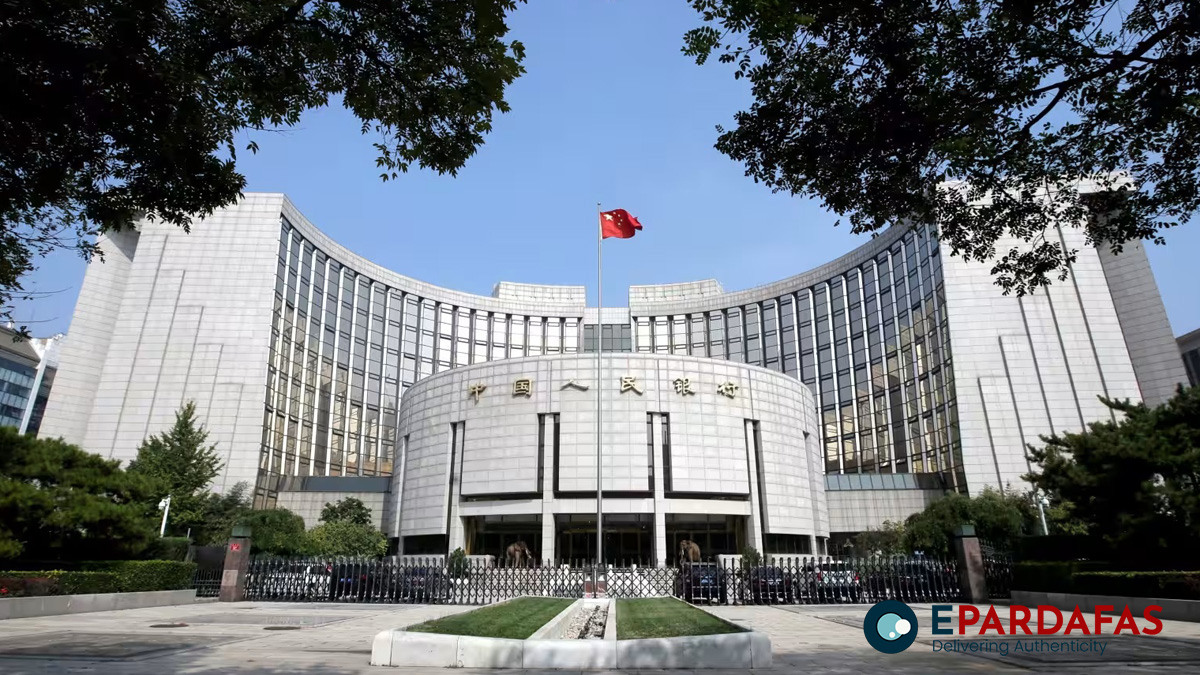
China’s State Banks Struggle with Rising Bad Loans and Shrinking Margins Amid Economic Pressures

China’s largest state-owned banks are grappling with increasing bad loans, declining interest margins, and stagnant consumer lending in 2024, highlighting deepening challenges in the financial sector. The situation unfolds as the government prepares a 500 billion yuan ($69 billion) capital injection to stabilize the banking system.
Executives from the “big four” state lenders—Industrial and Commercial Bank of China (ICBC), China Construction Bank (CCB), Agricultural Bank of China (ABC), and Bank of China (BOC)—warned that net interest margins (NIMs), a key profitability measure, will remain under pressure as the central bank implements further rate cuts to combat deflationary risks. ICBC President Liu Jun acknowledged the strain on banks’ balance sheets, citing the impact of historically low NIMs.
At the end of 2024, the four banks collectively reported 1.3 trillion yuan in nonperforming loans, an 82 billion yuan increase from the previous year. While corporate bad loans declined, personal loan defaults surged—rising by 69% at ICBC, 54% at ABC, and 53% at CCB. To mitigate losses, banks offloaded portions of their distressed debt to state-backed asset management firms like China Cinda Asset Management, which acquired 6.6 billion yuan in bad loans in 2024.
The banking sector has struggled since the government tightened financial regulations on real estate developers in 2020, leading to falling home prices and weakening consumer confidence. Mortgage growth has stagnated, with Bank of China’s outstanding home loans decreasing by 2% in 2024. Analysts point to a persistent lack of credit demand, as personal loans dropped by 389 billion yuan in February—the steepest decline in 10 months—while corporate loans expanded by 1.04 trillion yuan.
Despite these difficulties, the big four banks managed to post a modest 2% rise in annual net profit, reaching 1.2 trillion yuan, largely due to gains from investment securities and lower impairment losses. The government’s latest stimulus measures, announced at the National People’s Congress, include issuing special treasury bonds to bolster the core capital of major banks. This move aims to enhance their stability and capacity to support the real economy.
Bank executives expressed willingness to support the government’s policies, with CCB Vice President Ji Zhihong affirming the bank’s commitment to underwriting public debt. Analysts suggest the capital injection could enable banks to offer lower interest rates to consumers and corporations, reinforcing their role as key instruments of Beijing’s economic strategy.
Despite the financial turbulence, shares of state-owned banks have remained stable since the government’s stimulus announcements in late 2023. Investment firms, including Ping An Insurance, continue to hold substantial stakes in these banks, indicating confidence in their long-term resilience.












Comments